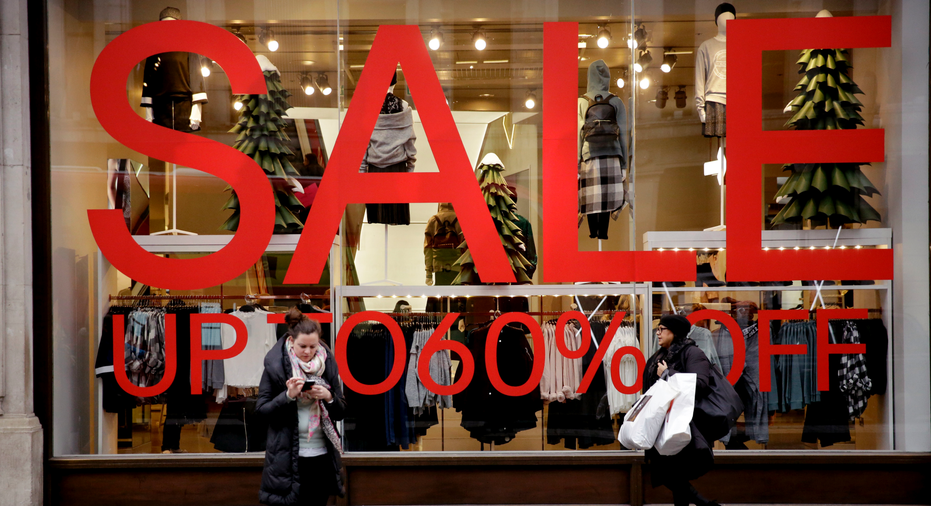UK unemployment rate falls to 42-year low but wages subdued

LONDON – Household incomes in Britain are being squeezed even though unemployment has fallen to its lowest level since the mid-1970s, official figures showed Wednesday, conflicting developments that accentuate the uncertainties policymakers are grappling with as the country's exit from the European Union looms nearer.
In its monthly update on the labor market, the Office for National Statistics said the unemployment rate between March and May fell to 4.5 percent, down 0.2 percentage point from the previous three-month period. The rate is now at its lowest level since 1975.
The number of people out of work declined by 64,000 during the quarter to 1.49 million, and the employment rate, the proportion of people aged from 16 to 64 who were in work, was 74.9 percent, the highest since comparable records began in 1971.
The positive news contrasts with other figures showing the economy slowing down. In the first quarter of the year, the British economy grew by a quarterly rate of 0.2 percent, the lowest of all the Group of Seven leading industrial economies.
Employment figures often lag developments in the wider economy so the recent slowdown may not be felt for some months. The impact could be accentuated if Britain's Brexit talks, which began in earnest last month, fail to make much headway in the coming months.
"Historically unemployment is a 'lazy indicator,'" said Ben Knight, professor at the Warwick Business School. "I would expect unemployment to rise if the Brexit effect on GDP growth turns out to be significantly negative, but it could be the end of the year before we can discern any effect of the Brexit vote."
Worries that Britain could crash out of the EU in March 2019 with no trade deal with its former partners is, according to most economists, the biggest risk facing the country, a worst-case scenario that could lead to many firms ditching the country for continental Europe. In such a situation, Britain would operate under World Trade Organization rules, which would see tariffs slapped on many of the country's exports.
Credit ratings agency Moody's warned Wednesday that Britain's growth prospects could be materially weaker if no deal for privileged trade access to the European single market is agreed on. Rival Standard & Poor's delivered a similarly bleak appraisal Tuesday.
"It remains unclear whether the U.K. government can eventually deliver a reasonably good outcome," said Kathrin Muehlbronner, a Moody's senior vice president. "The likelihood of an abrupt — and damaging — exit with no agreement and reversion to WTO trading rules has increased compared to our expectation directly after the referendum, with the government so far pursuing objectives that imply a 'hard' exit."
Concern over the impact of Brexit is the main reason why the Bank of England cut its main interest rate last August to a record low of 0.25 percent.
However, some members of the bank's Monetary Policy Committee think rates should go up now as inflation is running above the 2 percent target, at 2.9 percent, and unemployment is falling. The Federal Reserve in the U.S. has similarly voiced concern about rising inflation and a tight labor market, and it has been steadily raising interest rates.
Other Bank of England rate-setters, however, point to the continued weakness of wage growth as a source of concern. Wednesday's figures showed average weekly earnings for employees increased by 1.8 percent including bonuses, and by 2.0 percent excluding bonuses, compared with a year earlier. Both are below inflation, meaning that living standards are falling, a development that's likely to weigh on spending in the months to come as it has done over the previous few.
Samuel Tombs, chief U.K. economist at Pantheon Macroeconomics, said the recent fall in consumer confidence will also likely make workers even less willing to change roles, decreasing the pressure on employers to offer higher salaries.
"So despite low unemployment, we continue to expect wage growth to remain in the low 2's, placing little pressure on the MPC to hike rates," he said.



















